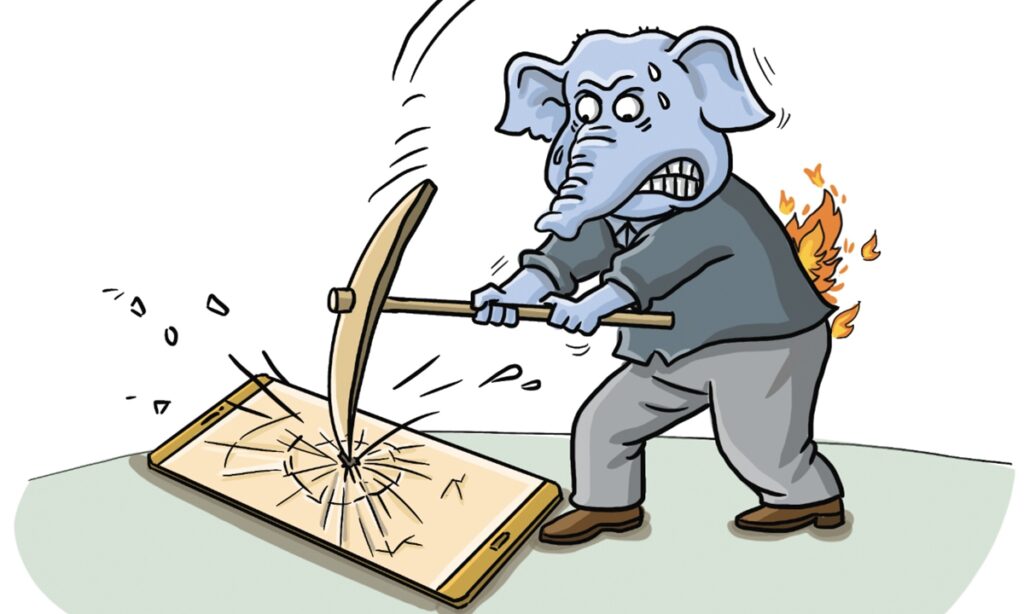Chinese smartphone vendors in 2020 grew their market share in India despite the headwinds caused by New Delhi from border clashes to economic conflicts.
“Chinese vendors collectively contributed to about 77 percent of total phone shipments in 2020, against 72 percent in 2019,” Varun Kannan, industrial analyst from Canalys Research said in a statement.
Not only have the political headwinds between China and India have produced little to no impact on the momentum the vendors like Xiaomi, Oppo and Vivo gathered in 2020, their “share likely to continue moving north as the nation prepares itself for the onset of 5G,” said Kannan.
Against the backdrop of New Delhi constantly rolling out confrontation measures targeting Chinese enterprises, and playing up nationalism aimed at instigating boycotts of Chinese products, the growing market share of Chinese vendors is certainly not easy, but it is not a surprise either.
Essentially it is the competitiveness of Chinese-made smartphones that determined their dominant position in the India market. Ill-intended Indian politicians cannot reverse the fundamental trends of the market, and the consumers will eventually identify the products that are most appropriate for them.
Chinese producers always develop products and services based on the locals’ specific demands and preferences. Producing high quality products at reasonable prices, they are undoubtedly the best value choice for vast Indian consumers. Even amidst the government orchestrated boycott, sales of new Chinese smartphone brands have kept rising.
From another different perspective, it highlighted the economic and trade complementarities between China and India which has been a positive factor for the economic growth of India.
With advanced technology and sufficient capital, Chinese investors can facilitate faster domestic economic growth and contribute to India’s further development too. Also, China’s colossal and robust market represents great opportunities for India businesses to grow and thrive.
While holding a confrontational mindset, New Delhi has shown trend of indulging in playing geopolitical games. In 2020, the Modi administration recklessly rolled out many measures to restrict or ban Chinese apps, heightening scrutiny over Chinese investments, and prolonging custom clearance of shipments from China.
However, Chinese investors are not the only party bearing economic losses. Indian consumers, its industries as well as its general economic growth rates are all feeling the pinch of the ill-designed policies coming out of New Delhi, from less choice for consumers, to weakened facilitation for local industries.
The trend of history is irreversible which always benefits those who can seize the momentum. For the past year, some India politicians tried to disregard the historical trend and balefully undermined bilateral relations between the two nations. It will only end up down the drain of history.
The past year was a unique and challenging time for the world due to not only the once-in-a-century pandemic crisis, but also the ceaselessly unstable geopolitical issues across the world.
Now with wide expectations that the world will see fewer disturbances, it is crucial for New Delhi to acknowledge the historical trend and redefine its foreign policy, in particular with China.
The author is director of the Institute of Bay of Bengal Studies at Shenzhen University. bizopinion@globaltimes.com.cn
Illustration: Xia Qing/GT




